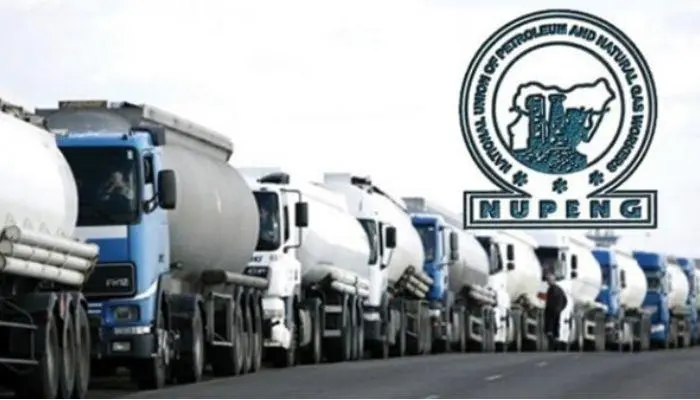The looming threat of a nationwide industrial strike by the Nigeria Union of Petroleum and Natural Gas Workers (NUPENG) prompted a swift response from the Nigerian government. Minister of Labour and Employment, Muhammadu Dingyadi, called for an urgent tripartite conciliation meeting with NUPENG and the Dangote Group, the focus of the union’s grievances. Originally scheduled for the afternoon, the meeting was abruptly moved to the morning, underscoring the government’s concern over the potential economic fallout of a strike. However, logistical challenges arose as NUPENG’s leadership and other key participants were delayed in Lagos, awaiting flights to Abuja, the meeting’s designated location. This delay prevented the meeting from commencing as scheduled, highlighting the urgency and complexity of the situation.
The backdrop of this urgent meeting is a bitter dispute between NUPENG and the Dangote Group, centering on allegations of unfair labor practices. NUPENG accuses the conglomerate of engaging in “crude and dangerous anti-union practices,” fostering a monopolistic environment, and implementing detrimental industrial relations strategies. Specifically, the union points to allegedly low wages paid by the Dangote refinery compared to industry standards, claiming they are among the lowest in the sector. Furthermore, NUPENG alleges that drivers of imported Compressed Natural Gas (CNG) trucks contracted by Dangote are prohibited from joining industry unions, a practice the union deems a violation of fundamental labor rights.
NUPENG contends that these alleged practices contravene several legal frameworks and international conventions. They cite Section 40 of the Nigerian Constitution, which guarantees freedom of association, as well as the Labour Act and conventions established by the International Labour Organisation (ILO). These legal instruments uphold the right of workers to form and join unions without fear of reprisal or discrimination. NUPENG’s invocation of these legal pillars underscores the seriousness of the accusations and the potential legal ramifications for the Dangote Group should the allegations be substantiated. The union’s firm stance suggests a determination to protect its members’ rights and ensure fair labor practices within the oil and gas sector.
The potential impact of a nationwide strike by NUPENG on the Nigerian economy cannot be overstated. As a key player in the oil and gas sector, a NUPENG strike could cripple fuel distribution, leading to shortages, price hikes, and widespread disruption of economic activity. The government’s swift intervention reflects a keen awareness of this vulnerability and a desire to prevent a scenario that could further strain the already fragile economy. The rescheduling of the meeting to an earlier time underscores the gravity of the situation and the government’s prioritization of resolving the dispute before it escalates into a full-blown crisis.
The delay in the meeting caused by the travel logistics of the NUPENG leadership and other stakeholders adds another layer of complexity to the situation. While the reason for the rescheduling remains unclear, it highlights the challenges inherent in coordinating such high-stakes meetings involving multiple parties from different locations. The delay also underscores the urgency of finding a resolution, as every hour of stalled negotiations increases the risk of the dispute escalating into a strike. The government’s efforts to facilitate the meeting, despite the logistical hurdles, demonstrate its commitment to mediating a solution and averting a potentially crippling strike.
The core issues in this dispute revolve around fundamental labor rights and the balance of power between a powerful corporation and a labor union. NUPENG’s allegations against the Dangote Group raise questions about fair wages, freedom of association, and the role of multinational corporations in upholding labor standards. The government’s intervention signifies its role as a mediator and regulator, tasked with ensuring a level playing field between employers and employees. The outcome of this tripartite meeting holds significant implications not only for the parties involved but also for the wider Nigerian economy and the future of labor relations within the country. Finding a resolution that addresses NUPENG’s concerns while also considering the operational realities of the Dangote Group will be a delicate balancing act.














